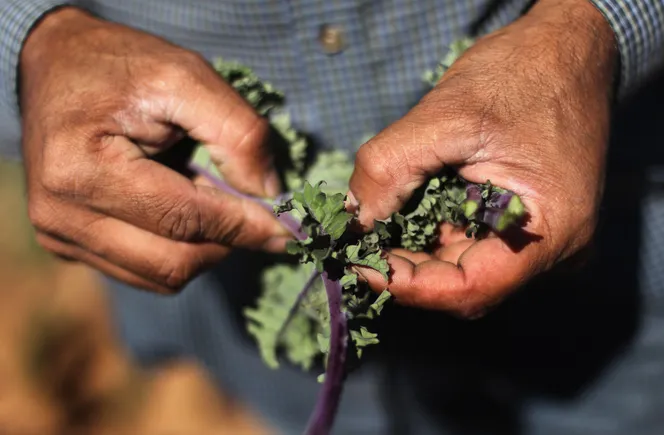The U.S. Environmental Protection Agency on Tuesday pulled a pesticide commonly used on broccoli and onions from the market due to health risks to unborn babies, a rare move from the agency not seen for nearly 40 years.
The ban encompasses all registrations of the herbicide dimethyl tetrachloroterephthalate, also known as DCPA or Dachtal. The weedkiller is used on broccoli, Brussels sprouts, cabbage and onions, and is considered by the EPA to be a risk to pregnant farmworkers and unborn children.
Exposure to Dacthal can cause changes to fetal thyroid hormone levels, leading to low birth weight in addition to impaired brain and motor skill development. EPA found that some pregnant individuals handling DCPA products could be subjected to exposures up to 20 times greater than what the agency has estimated is safe for unborn babies.
“DCPA is so dangerous that it needs to be removed from the market immediately,” Michal Freedhoff, EPA’s assistant administrator for the Office of Chemical Safety and Pollution Prevention, said in a statement. “In this case, pregnant women who may never even know they were exposed could give birth to babies that experience irreversible lifelong health problems.”
The EPA said it will issue a notice to cancel the DCPA products within the next 90 days, a process that can take months if not years. While cancelation proceedings get underway, the agency has also suspended sales of the products effective immediately “due to the serious and imminent harm posed.”
The move comes following more than a decade of investigation into DCPA’s health effects, an effort that was stalled after the pesticide’s sole manufacturer AMVAC Chemical Corporation refused to provide complete data of DCPA’s effects on thyroid development. Once the manufacturer submitted thyroid data in 2022 — close to six years past the deadline — the EPA determined that DCPA use and application was linked to health risks even when personal protective equipment and engineering controls are used.
Following EPA’s health assessment, AMVAC agreed to stop selling the pesticide for use on turf, though it continued to sell the chemical to agricultural producers. The Environmental Working Group, a consumer watchdog organization, found DCPA on nearly 60% of kale samples tested by the Department of Agriculture, with the pesticide also present on many collard and mustard green samples.
The EPA moved to take further action for DCPA use on farms earlier this year, issuing an unusual warning to farmworkers in April about “serious, permanent, and irreversible health risks” associated with the pesticide. The agency warned that levels of DCPA in a treated field can remain at unsafe levels for 25 days or more, and that spray drift could put pregnant women in surrounding areas at risk.
Environmental and farm groups celebrated the decision, though some noted the agency’s ban comes years too late. The European Union banned DCPA in 2009 and the U.S. has classified the pesticide as a possible carcinogen as early as 1995, according to the Environmental Working Group.
“The EPA’s decision to finally suspend DCPA is welcome news, but it’s long overdue,” EWG Senior Toxicologist Alexis Temkin said in a statement. “For years, EWG and other public health advocates have warned about the serious risks the weedkiller poses to farmworkers, pregnant people and other vulnerable populations.”



